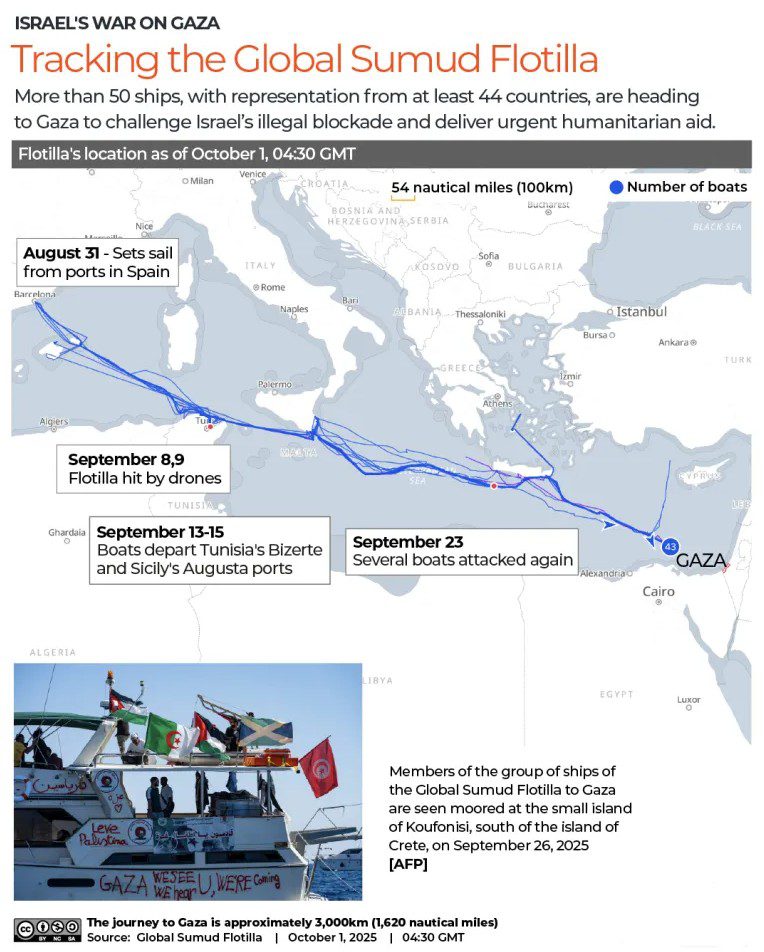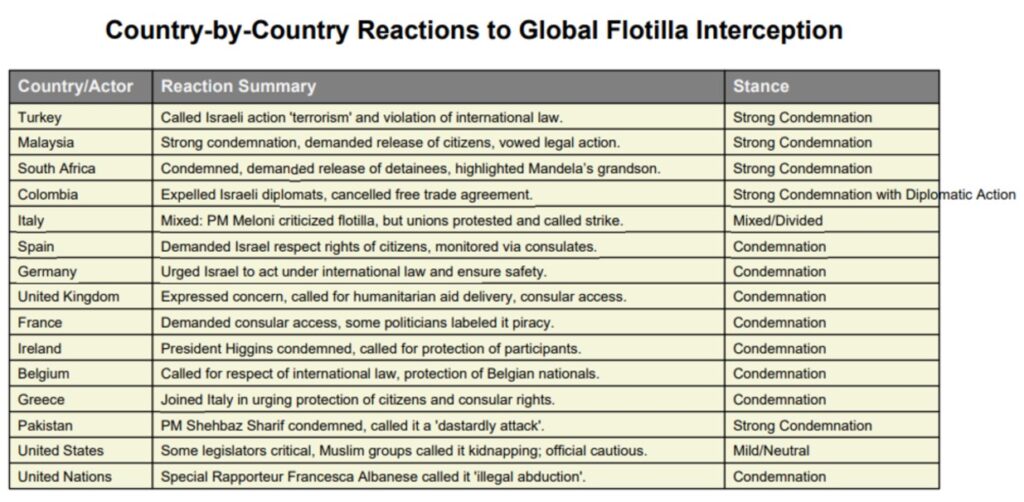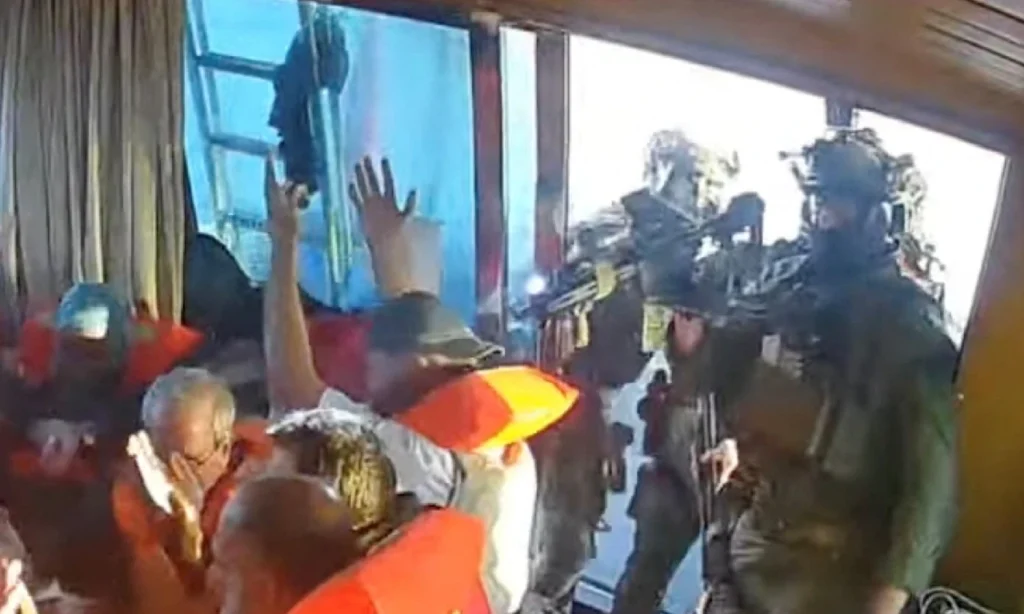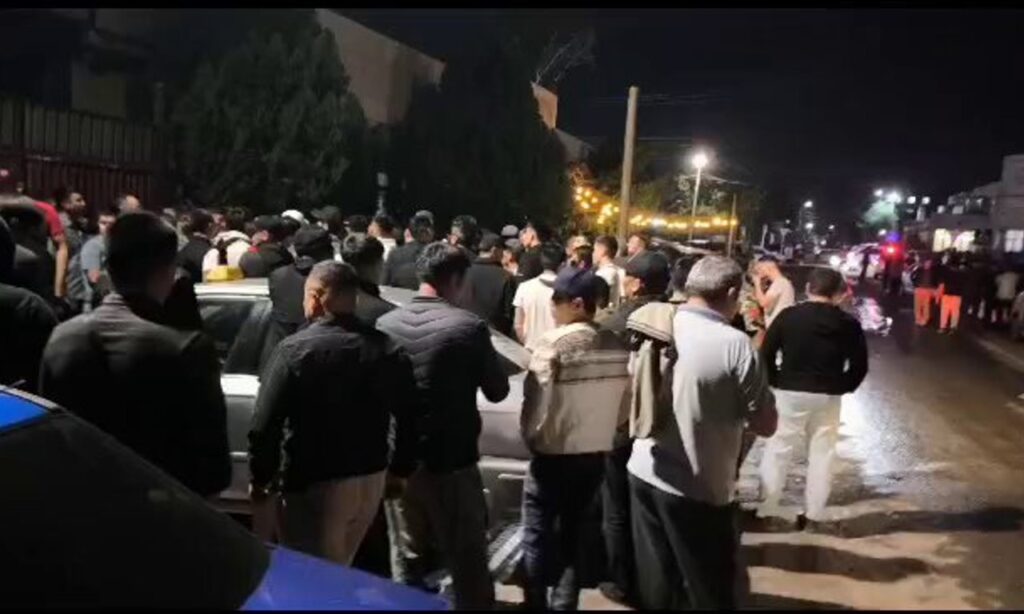The Global Sumud Flotilla, which carried humanitarian aid and international activists toward Gaza, has been completely intercepted by the Israeli military. The final vessel, Marinette, was stopped in international waters, officially ending the mission. Roughly 450 activists from multiple nations, including well-known figures like Greta Thunberg, were detained. Israel defended its actions by citing its long-standing naval blockade of Gaza, calling the area an “active combat zone.” However, flotilla organizers and several governments denounced the interceptions as violations of international maritime law. The event sparked worldwide protests, with many nations demanding the immediate release of detainees and raising questions about the legality of Israel’s blockade. This article examines Global Reactions to Israel’s Interception of the Global Sumud Flotilla and the diplomatic fallout.
Map Overview of the Flotilla’s Journey
The flotilla began its journey from ports in Spain and Italy, stopped in Greece and Tunisia, and sailed toward the Gaza coastline. Israeli naval forces intercepted or boarded the vessels at multiple points in the Mediterranean Sea, cutting off the mission before reaching Gaza.

International Statements & Reactions
Malaysia
Malaysia condemned Israel’s actions as “criminal and cowardly aggression.” Officials demanded the immediate release of detained citizens and promised to pursue all lawful channels to hold Israel accountable.
South Africa
President Cyril Ramaphosa declared the interception a breach of international law. He stressed that humanitarian aid must reach Gaza and highlighted that detainees included Mandla Mandela, grandson of Nelson Mandela.
Colombia
President Gustavo Petro expelled Israeli diplomats and ended Colombia’s free trade agreement with Israel. He also committed to legal steps to secure the return of detained citizens.
Italy
Foreign Minister Antonio Tajani said Israel promised that “no violent actions” would be taken. Meanwhile, Italian unions declared a general strike in solidarity, but Prime Minister Giorgia Meloni dismissed the flotilla as counterproductive to Palestinians.
United Kingdom
The U.K. expressed serious concern and urged that aid cargo be delivered through humanitarian channels in Gaza. Britain also confirmed consular support for its detained nationals.
Germany
Germany called on Israel to comply with international law and ensure the safety of all activists on board.
Spain
Spain’s Foreign Ministry demanded respect for the rights and safety of Spanish nationals. Officials monitored the situation through embassies in Nicosia and Jerusalem.
Greece
In a joint statement with Italy, Greece urged Israel to guarantee participant safety and grant consular protection.
Ireland
President Michael D. Higgins criticized Israel for blocking essential aid, calling flotilla safety an issue of global concern.
Belgium
Belgium’s Foreign Minister Maxime Prévot urged Israel to follow international law, protect Belgian nationals, and facilitate their return.
France
France demanded immediate consular access for its citizens and called for their prompt repatriation. Several French leaders went further, labeling the interception as “piracy.”
United States
The U.S. reaction remained cautious. While Democratic lawmakers urged stronger protection for activists, advocacy groups accused Israel of “kidnapping humanitarian workers” in international waters.
Pakistan
Prime Minister Shehbaz Sharif condemned the operation as a “cowardly attack.” He demanded peace efforts be prioritized and humanitarian aid delivered to Gaza.
Turkey
Turkey issued one of the harshest reactions, calling the interception “an act of terrorism” and accusing Israel of “fascist and militarist policies.”
United Nations / Special Rapporteur
Francesca Albanese, U.N. Special Rapporteur on Palestine, called the incident an “illegal abduction.” She criticized Western governments for failing to act and demanded stronger accountability.

Conclusion
The Global Sumud Flotilla interception has become a defining moment in international diplomacy. While some governments responded cautiously, others—including Turkey, Colombia, Malaysia, and South Africa—took strong actions ranging from expelling diplomats to organizing strikes. At the core of the debate are demands for humanitarian aid delivery, detainee release, and compliance with international law. The growing diplomatic divide highlights how deeply the issue resonates worldwide, reaffirming the importance of understanding Global Reactions to Israel’s Interception of the Global Sumud Flotilla.




